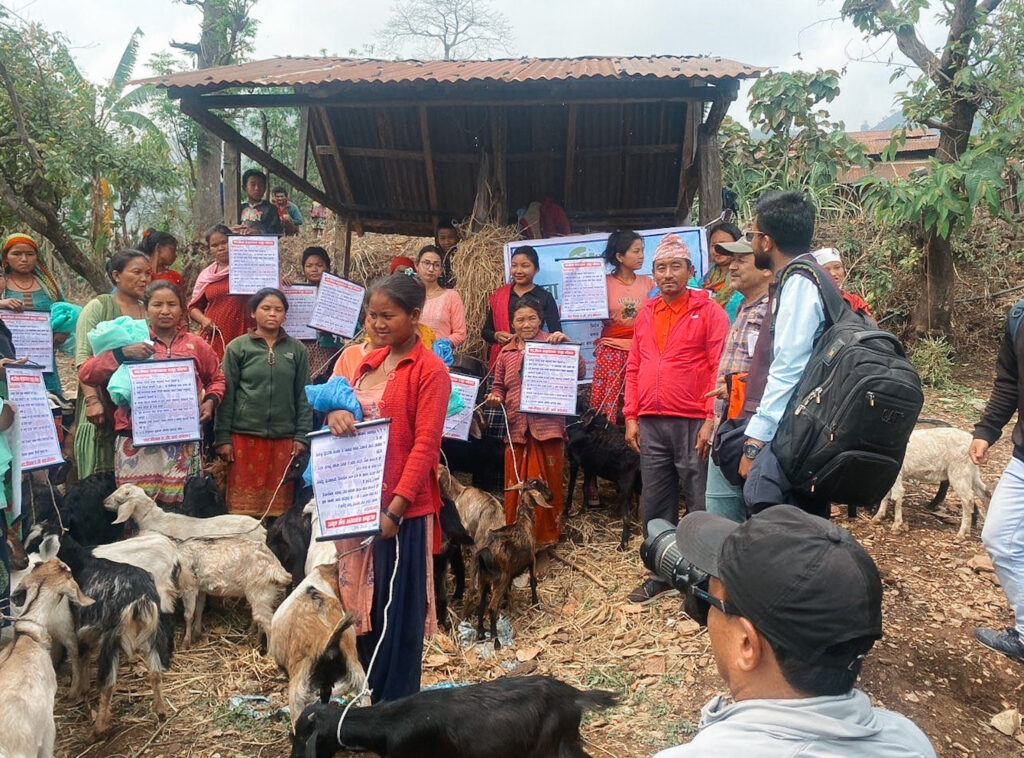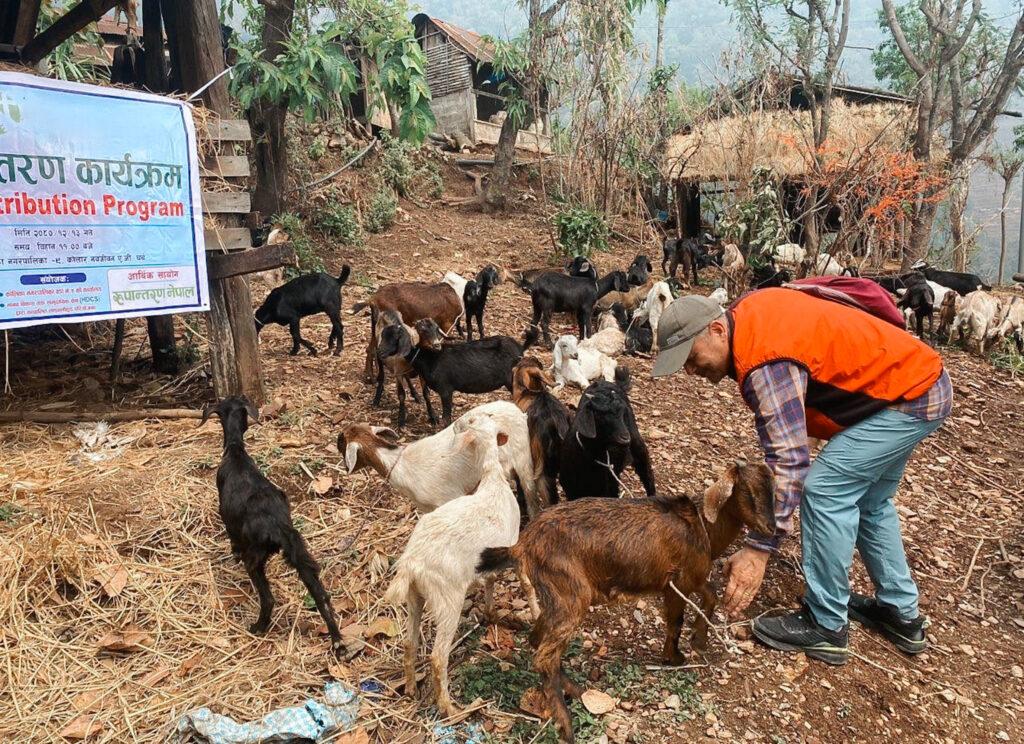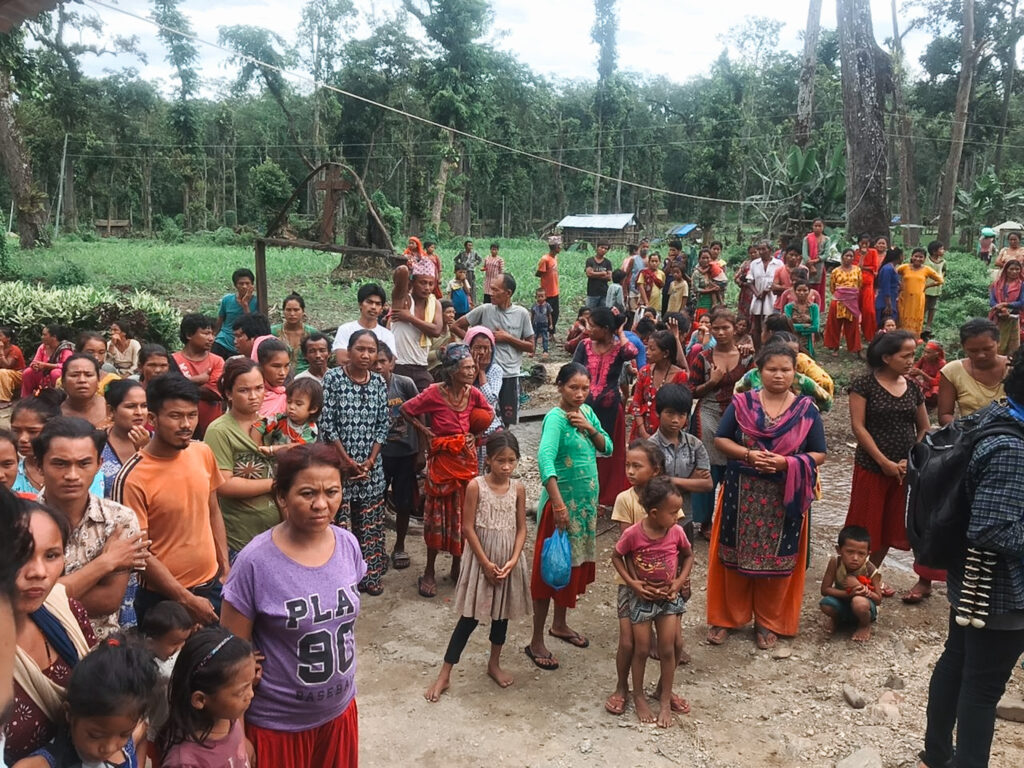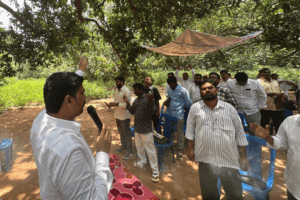Home > Dignified work >
In rural communities struggling with poverty and stuck in unhealthy systems, survival often takes precedence over vitality. Many families find themselves caught in cycles of economic hardship without the necessary resources to move forward.
This is where livelihood programs become a catalyst for change.
A livelihood program is an initiative designed to equip individuals, especially in impoverished communities, with sustainable ways to earn a dignified income. These programs provide vocational training, business development support, and access to markets, enabling participants to build self-sufficient lives. Examples include agriculture, animal husbandry, vocational training, and small business enterprises. By fostering economic independence, livelihood programs help break cycles of poverty, strengthen families, and promote holistic community transformation.
It’s essential to note, we at Mission ONE believe our work, including the implementation of livelihood projects, is only made possible because of the trusted relationships built within the community beforehand. People groups that are often overlooked and cast aside may be wary of outside interventions. Taking time to listen and engage ensures that programs are developed in a way that meet real needs. Trust creates a foundation for true partnership, where individuals feel empowered rather than dependent. When communities see that we are committed to walking alongside them rather than simply offering temporary solutions, they become active participants in their own transformation. Through this process, we have the opportunity to demonstrate the love of Jesus in tangible ways—approaching communities with genuine care and acceptance, which naturally opens doors for sharing the gospel—our ultimate goal.
The Dignity of Work
One of the most profound impacts of livelihood programs is the restoration of dignity through meaningful work. With limited access to education leading to a lack in job opportunities, many in marginalized communities often find themselves involved in prostitution or at risk of turning to substance abuse. When individuals, especially in impoverished rural settings, have access to sustainable ways to earn a living, they experience a renewed sense of purpose and self-worth.
Breaking Cycles of Poverty
Generational poverty is often reinforced by systemic barriers, lack of education, and limited economic opportunities. Livelihood programs disrupt this cycle by offering the tools and skills necessary to pave a new path forward. They allow individuals the ability to create their own economic opportunities.
Strengthening Families
When parents are empowered and given the resources to provide for their children, families flourish. Not only that, the entire community benefits from their renewed strength and purpose. A stable income also allows families to prioritize education, leading to increased literacy rates—breaking cycles of poverty deeply rooted in the family system.
Communities Transformed
Two powerful examples of this transformation are found in our work with the Cave People and the Musahar community, both in Nepal. These groups, historically marginalized and living in extreme poverty, faced systemic barriers that kept them trapped in hopelessness. By introducing goat livelihood programs, we provided families with a sustainable source of income and the skills necessary to create a lasting, long-term impact—restoring honor in Jesus’ name.
Today, we’ve seen an increase in children attending school and a decrease in addictive patterns amongst these communities. The impact of these projects has gone beyond economics—it has strengthened family structures and inspired a new vision for the future.
At Mission ONE, we believe transforming communities—like these in Nepal—to look more like the Kingdom has effects that are both visible in the present, and also echo into eternity.
“A livelihood program, like what we did with the Cave People and Musahar Community, restores hope because it provides them with jobs and a way to provide for their families. This type of project has the potential to transform entire communities from the inside out.” –Bikonzi Moise, M1 Programs Manager
The Gospel: The True Source of Transformation
While livelihood programs provide a vital avenue for breaking cycles of poverty, true transformation is only possible through the power of the gospel. Economic stability and dignified work are tools that help restore communities, but lasting change happens when hearts are renewed by Christ. By integrating biblical values into these projects, we are not merely addressing material poverty, but also pointing people to the ultimate source of life and renewal—God Himself.
For organizations and individuals seeking to make a lasting impact in rural communities, investing in livelihood programs is a strategic and compassionate approach. By providing tools, training, and opportunities for dignified work, we can empower individuals to break free from poverty and create thriving, self-sufficient communities.
The beauty of this model is that when one person is empowered, an entire village can be transformed. The question we must ask ourselves is: How can we be part of this life-changing work?
Search the Blog
Free Resource
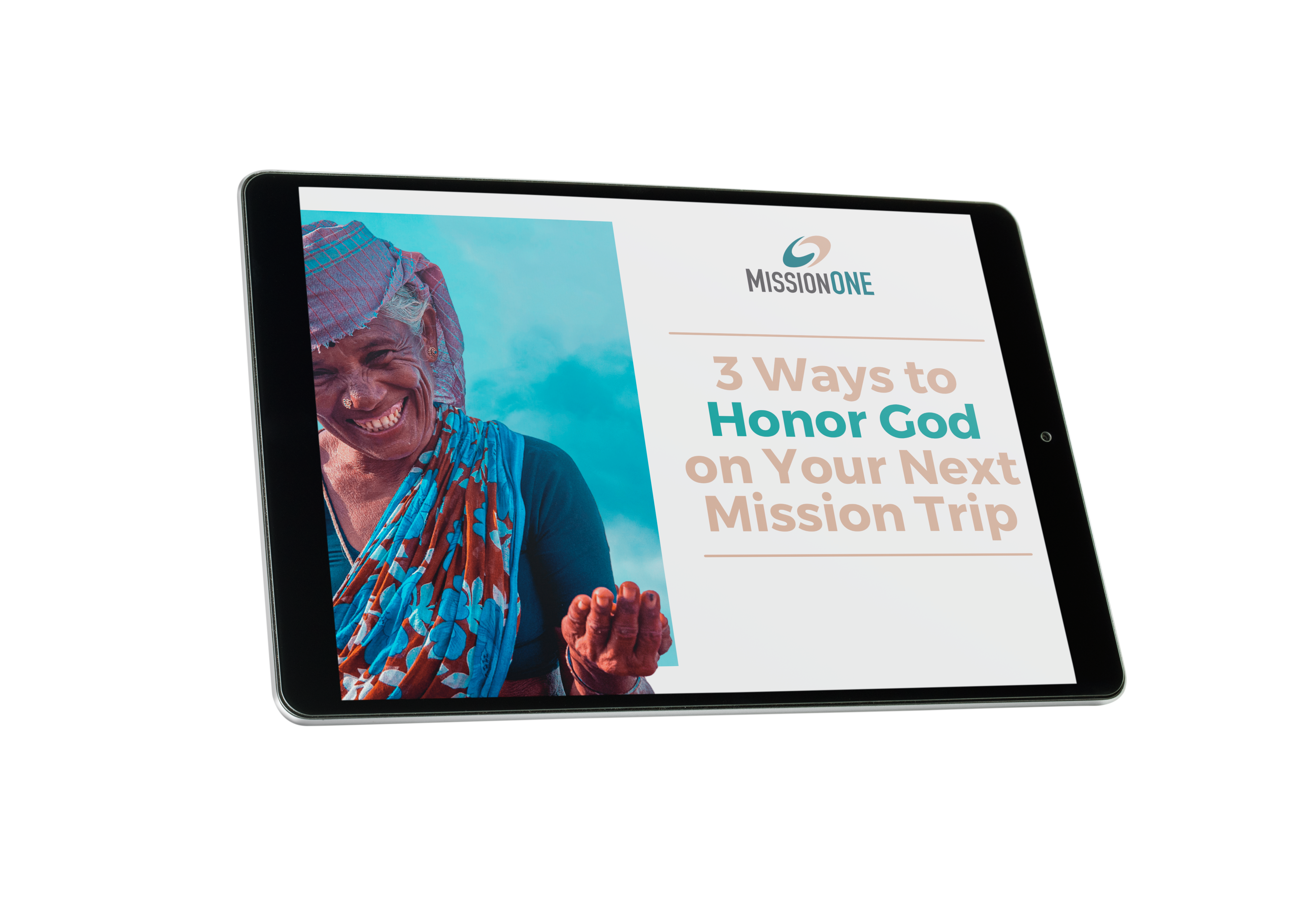
3 Ways to Honor God on Your Next Mission Trip
We're sharing three things you should consider before you organize or participate in an international mission trip, seek to do work in the multicultural neighborhood in your own city, or embark on any cross-cultural partnership.

